People v. Goetz, 73 N.Y.2d 751 (Nov 22, 1988): Goetz entered a NYC subway car and sat down next to four young men. One of them said to Goetz, “Give me five dollars.” After the second request for money, Goetz rose from his seat and fired five shots. All four men survived, though one was permanently paralyzed and suffered brain damage.
Goetz confessed to the shooting but argued that his actions fell within the New York self-defense statute. Under Section 35.15, “A person may not use deadly physical force upon another person…unless…He reasonably believes that such other person is committing or attempting to commit [one of certain enumerated predicate offenses, including robbery].“
The court held that Goetz’s actual belief that he was in imminent danger was not dispositive because the standard is not purely subjective. Rather, the self-defense justification of deadly force requires an objectively reasonable belief that an imminent threat exists. That is, considering all the circumstances, a “reasonable person” in Goetz’s place would have believed he or she was in danger.
Was this a fair standard? Consider Goetz’s background:
After being mugged once in the mid 1970s while with friends returning to a Harlem subway station, Goetz was mugged yet again in 1981 by three men and sustained injuries from the assault. It was this second violent mugging that prompted Goetz to begin carrying a gun. Goetz had brandished his pistol on two occasions prior to the attack on the subway in order to frighten away would-be robbers.
A purely objective standard doesn’t consider individual circumstances. However, a purely subjective standard would let any reprehensible act go unpunished, provided it’s subjectively justified.

Due process of law requires courts to apply a consistent standard; jumping between objective and subjective standards on a case by case basis would be unconstitutional. Is there a well-defined middle ground between objectiveness and subjectiveness that courts can regularly apply?
The New York State legal standard for the self defense justification use of deadly force shifted after rulings in the case. New York jurors are now told to consider a defendant’s background and to consider whether a reasonable person would feel imperiled if that reasonable person was the defendant.
The question is no longer the objective Would a reasonable person shoot, nor is it the subjective Did Goetz believe it was reasonable to shoot. The question is now Would a reasonable person shoot if he’d been previously been mugged, injured, and successfully used a gun to fend off criminals. This approach strives to reach an objective conclusion while considering a subjective background – just like The Video Game Rule. (That lead-in was about 10 paragraphs longer than I’d originally planned. I apologize. You’ll never get verbose philosophical bullshit from me ever again. To prove I’m sorry, I threw in some ShizNat and highlighted all the key phrases for your reading convenience.)
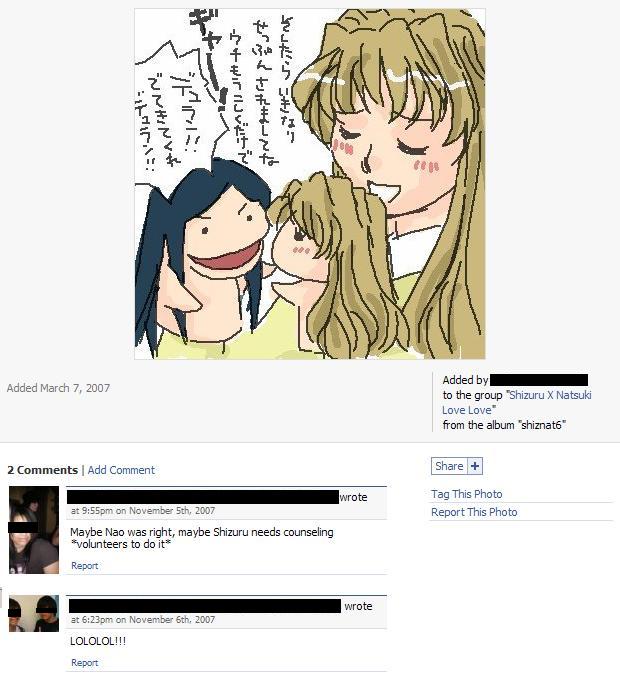
As stated in EF – A Tale of Lesbians, the Video Game Rule weights my standard of criticism based on the show’s original medium. My current criticism ranking, starting with the strictest:
- Anime remake
- Manga
- Movie
- Light novel
- Original concept
- Novel
- Visual Novel
- Video game
Why treat an anime based off a video game any differently than an anime remake? Because it’s a hell of a lot harder to pull off. An anime remake is like taking a test, receiving line-by-line feedback, and then getting paid twice as much to take the test again. A cakewalk like that deserves close scrutiny, unlike video game adaptations. If you stick too closely to the game, you won’t have a watchable product.
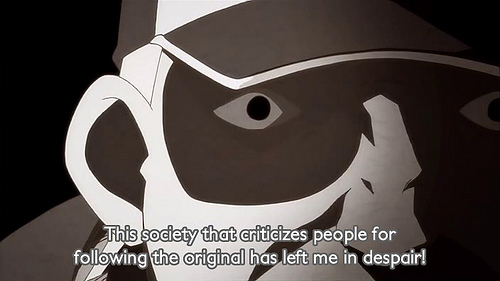
However, if the show is even remotely divorced from the game, the fans will revolt.
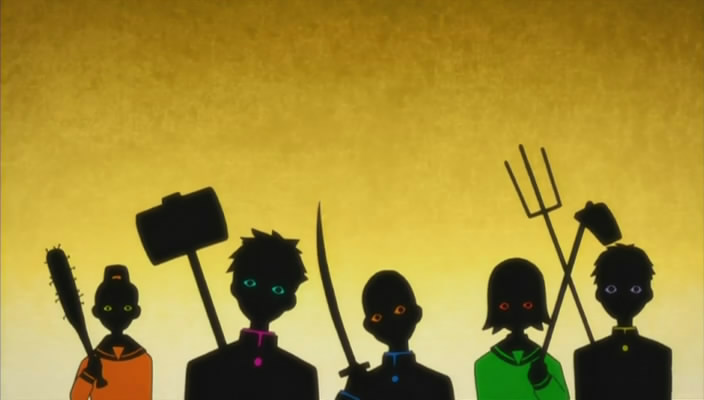
It’s the same with novels. The Harry Potter/Lord of the Rings assholes keep bitching about every subtle difference between the book and the movie. Get over it.
How does The Video Game Rule affect my rating system? There’s no better example than Shakugan no Shana.
Shana as a Video Game adaptation: A-
Shana as a Light Novel adaptation: B
It wasn’t until halfway through the second season that I found out Shana was based off a series of light novels instead of a video game. Question: If other fans knew that Shana wasn’t based off a video game, how is the show so popular? I brainstormed four plausible explanations:
1. We can relate to the main characters
Yuji is a mild-mannered scrub, just like 99% of all otaku. Japanese girls can relate to Shana:
- Black hair
- Brown eyes
- Short
- Flat
- Terrible English pronunciation
Both of these fan favorites come out on top:
- Yuji gets magical powers and a gigantic sword
- Shana defeats her taller, bustier, lighter-haired rivals in both love and war
2. Lesbian Potential
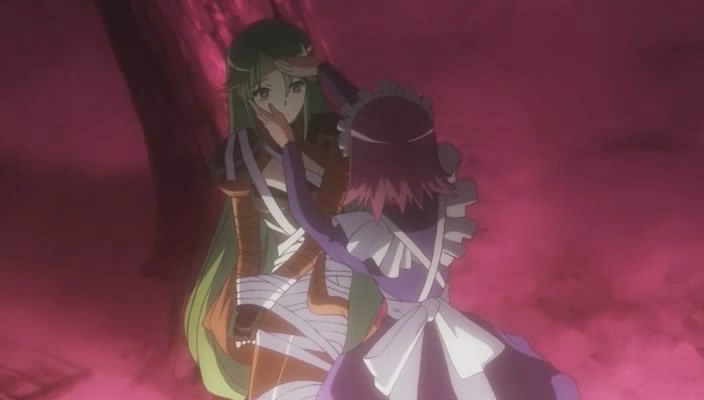
The real star of Shana II is Wilhelmina, or as they say in Japan, Uiruherumina. I love the name, but creating lame character nicknames adds a personal touch that strengthens blogger-reader rapport, so I came up with one for Wilhelmina: Groundskeeper Willie. (If you don’t get it, you’re not alone)

Groundskeeper Willie is the focal point from which several Yuri dimensions emerge: Willie x Pheles, Chigusa, Bel Peol, Shana (if you’re a pedophile), and my personal favorite, Groundskeeper Willie x Marge.
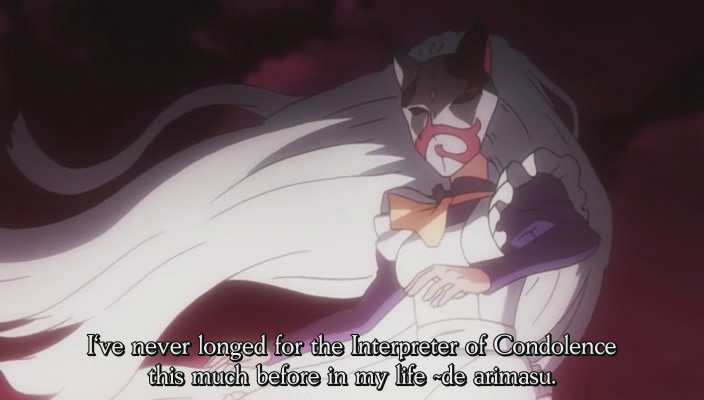
But Marge isn’t ready for that kind of relationship…
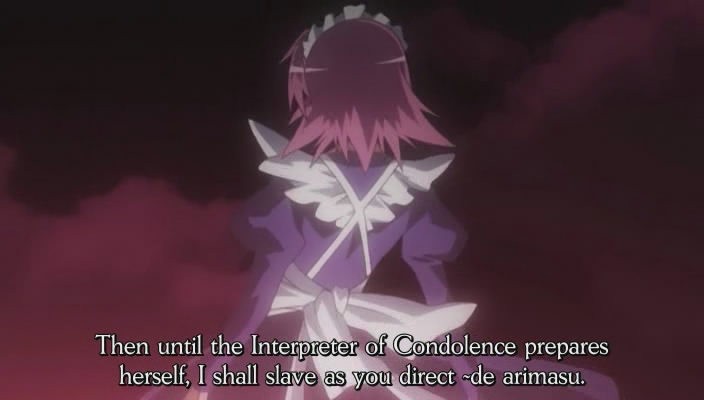
3. Good Music
Everyone loves Kotoko, though I must admit my favorite Shana theme is the first ending. It even has a fade-in – always a plus.
[vid]nY-tnmHceT0[/vid]
4. Dinosaurs

